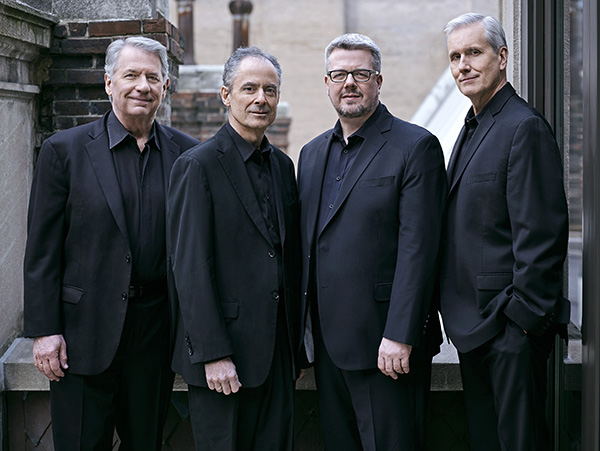By Daniel Hathaway
On Friday at 7:30, the Oberlin Artist Recital Series will present The Emerson String Quartet (pictured), who are retiring after 47 years on the road, in a Finney Chapel concert topped off by Beethoven’s outrageous Große Fuge. Read a preview here and buy tickets online.
At the same hour, The Cleveland Orchestra continues its four-day run of Amadeus (repeated Saturday at 8 and Sunday at 2). Read our review on Cleveland.com here.
Also on Friday at 7:30, Cleveland State University will throw a 60th Birthday Concert for composer Andrew Rindfleisch on Friday at 7:30, when Zeitgeist New Music Ensemble, Meridian Arts Ensemble, & pianists Geoffrey Burleson and Shuai Wang play a free program of his music in Drinko Hall.
Two interesting events are on for Saturday. At 3 at Heights Theater, Les Délices presents Salonera Sessions: Songs for Social Justice in which Renaissance lute songs, African American Spirituals, and traditional Lebanese melodies become vehicles for storytelling by countertenor Michael Walker & tenor Haitham Haidar. And at 7:30 at Praxis Fiber Workshop, violinist Edwin Huizinga, violist Aniela Eddy & and cellist Cullen O’Neil, present Bach’s Goldberg Variations in “Goldberg with Guts” (playing on gut strings — get it?)
Arts Renaissance Tremont begins its new season on Sunday at 4 at St. Wendelin Church with the Cavani String Quartet, plus violist Ayane Kozasa & poet Mwatabu Okantah.
Check our Concert Listings for more details and future performances.
INTERESTING READ:
The Berlin-based VAN Magazine reports on the orchestral crisis at the Cleveland Institute of Music. Read the article here.
Britain’s Royal Philharmonic Orchestra polled its younger audience members about changes they would welcome in the concert-going experience.
“Shorter concerts (27%), more matinee performances (24%), conductors speaking to the audience (20%) and being encouraged to keep phones on during a performance (11%) – these were just some of the things people would like to see at orchestral concerts, according to a new study.” Read the article here.
WEEKEND ALMANAC:
September 22:
On September 22, 1989, Russian-American composer Irving Berlin died at the age of 101 in New York City, having contributed some 1,500 songs to the mythical Great American Songbook over his 60-year career. One of the most celebrated was “God Bless America,” indelibly linked to the singer Kate Smith, but sung by Berlin himself on the Ed Sullivan Show on May 5, 1968. For just another taste of Berlin’s classic tunes, here’s a performance of Blue Skies by Cleveland’s TOPS Swing Band from the Trinity Cathedral Brownbag Concert on November 13, 2013.
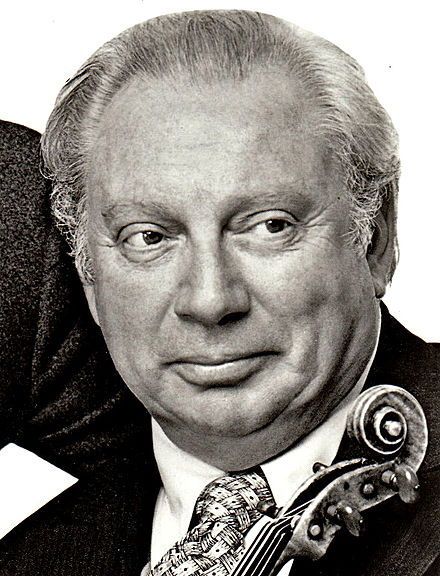
Stern interviewed Christoph von Dohnányi in 2000 when The Cleveland Orchestra was invited to open the 110th season of the hall. And conductor Michael Stern reflected here on his father’s life in music as part of the centenary celebrations of the violinist’s birth.
Before coming to Cleveland, I taught at Groton School in Massachusetts, where Isaac Stern was a favorite of the second headmaster and his wife (a keen amateur violinist). The story goes that they tried on several occasions to set up a concert for the students, but Stern’s management always turned them down. The solution: a rumor would be circulated that Mr. Stern would be “practicing” at a certain hour in the auditorium, and as if by magic, the entire school showed up to listen.
September 23 by Jarrett Hoffman:
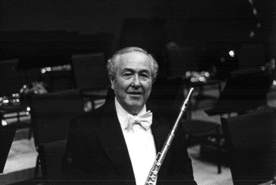
Soon after completing his studies at Eastman and then at Curtis, Baker took up a post as second flute in The Cleveland Orchestra from 1937-41. Short stints as principal flute with the Pittsburgh and Chicago Symphonies followed before he found a home for eighteen years in that position with the New York Philharmonic.
His powerful legacy extends from the orchestral side of the field to chamber music — he was a founding member of the Bach Aria Group — and pedagogy. He taught at Curtis, Juilliard, and Carnegie Mellon, and his many famous students include The Cleveland Orchestra’s own Joshua Smith and Mary Kay Fink. Baker’s dedication to teaching continued until the week he died at age 87 in 2003.
Among his many recordings, here’s a video of Baker playing the first movement of Bach’s Fifth Brandenburg Concerto with David Nadien, violin, Leonard Bernstein, piano, and the New York Philharmonic.
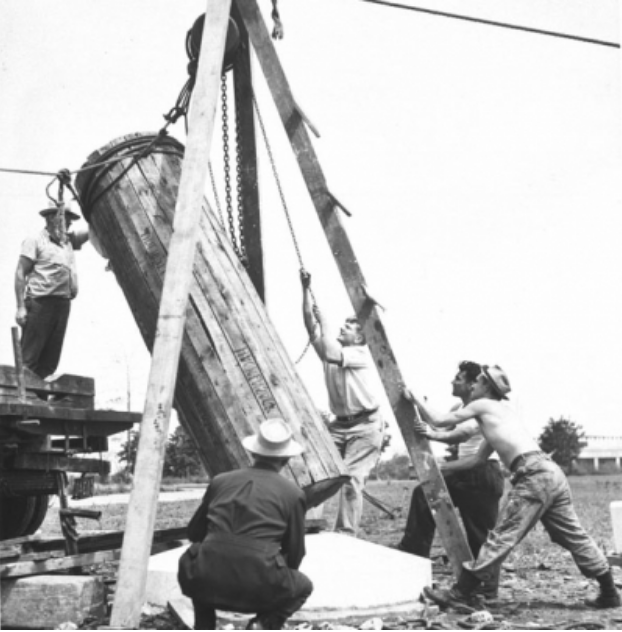
Sealed inside are over 100 objects that, it was decided, captured the spirit of the time, “including a pack of cigarettes, a 35mm camera, a safety razor, children’s toys, money, millions of pages of text on a microfilm, seed samples from common crops such as wheat, corn and cotton, and even handwritten messages from figures such as Albert Einstein and Thomas Mann,” according to the Bureau International des Expositions.
That raises a question that’s maybe a little fun, maybe a little sad: what objects would you bury to represent these times?
September 24:
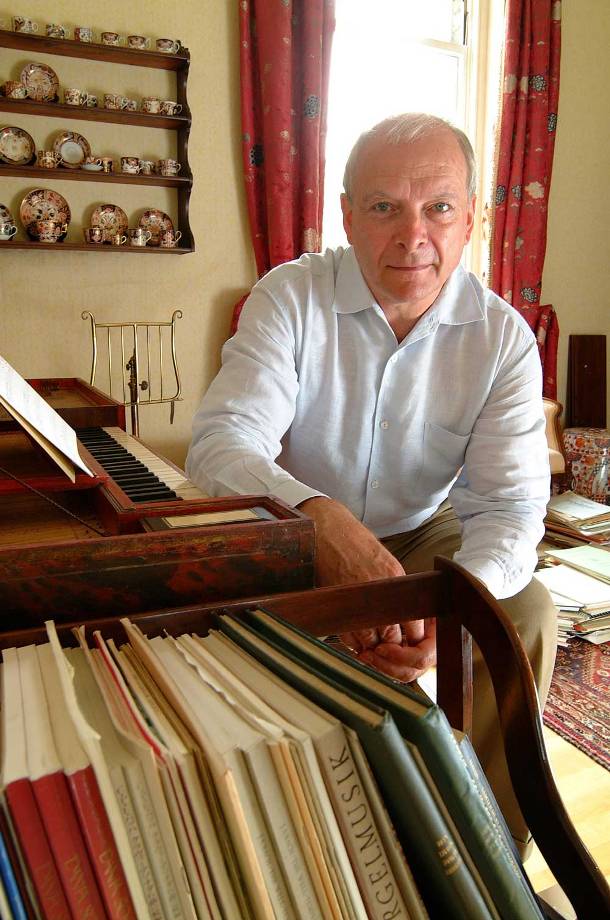
Hogwood was also noted for transforming Boston’s Handel and Haydn Society into a period instrument ensemble, along with his influential guest conducting appearances with a number of symphony orchestras. His career is detailed in Barry Millington’s obituary in The Guardian.
Click here to watch Hogwood’s performance of Haydn’s last symphony with the NHK Symphony Orchestra (misidentified as the AAM!), and here to watch a performance he led of Mozart’s Piano Concerto No. 15 with Robert Levin, who provided his own improvised cadenzas.
To see Christopher Hogwood in action as a musical scholar who served on the faculty of London’s Gresham College, here are two lecture-concerts: London: Music Under the Shadow of Handel, and an analysis of Messiaen’s Quatuor pour la fin du Temps.




